Every Fallout Game Ranked Worst to Best
They're some of the best RPGs ever made, but which Fallout game is the best of the best?
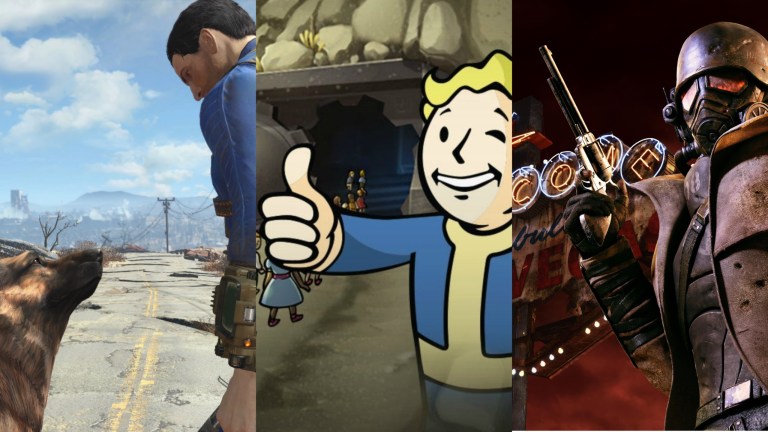
Amazon’s Fallout series has largely lived up to what once felt like an impossible level of hype. It’s a fantastic adaptation of the franchise that has exposed legions of newcomers to the wonderful horrors of the Fallout universe. Not everyone loves it, but divisiveness has long been part of the Fallout franchise’s legacy.
You’ll have a hard time finding a video game franchise as relatively small as Fallout (at least in terms of the total number of notable entries) that fans seem to disagree about more. For some, Fallout achieved perfection in 1997 (it’s a scientific fact). For others, Fallout didn’t come into its own until well into the Bethesda era of the game. Rankings of the franchise tend to vary wildly.
Before we dive into our rankings, please note I’m not including the Fallout board games or Fallout Pinball in this list. Many of the board games are quite good but are hard to judge alongside the video games. As for Fallout Pinball…it’s Fallout-themed pinball.
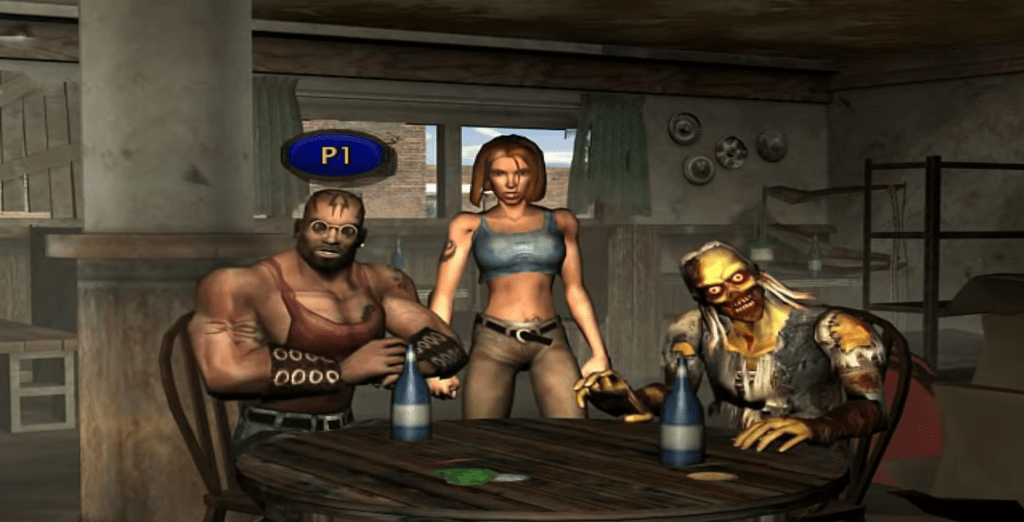
9. Fallout: Brotherhood of Steel
Every long-running franchise has at least one black sheep, and Brotherhood of Steel is most certainly that for the Fallout franchise.
Brotherhood of Steel is an ARPG developed in the style of the Dark Alliance series. Think of it as a dungeon crawler set in the wasteland complete with loot, unique character skills, and a plethora of co-op optional combat. On paper, that’s a pretty fantastic idea. At the very least, a game like that should offer the same wealth of simple (yet deep) gameplay that the best ARPGs of that style so often do.
The problem, dear reader, is in the execution of that concept. Brotherhood of Steel jettisons or dilutes many of the Fallout franchise’s best qualities and replaces them with…not much. You could forgive that shallowness if the game was fun, but its combat is surprisingly clunky, and its loot/character-building systems are nowhere near as engaging as they need to be to keep a game like this from quickly becoming repetitive. What a missed opportunity.
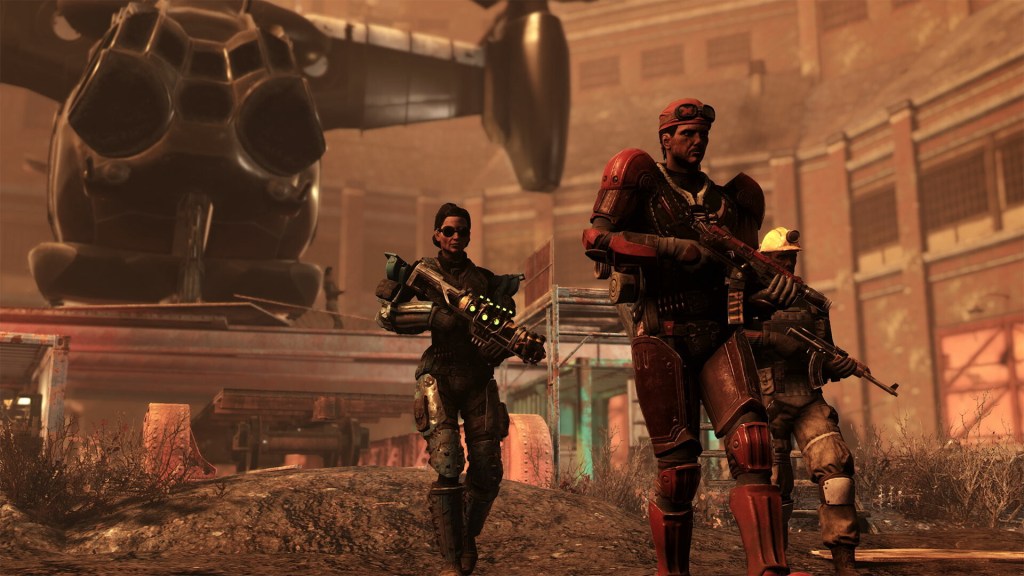
8. Fallout 76
Fallout 76 is significantly better than it used to be. Following a disastrous launch that threatened to torpedo this game’s potential, Fallout 76’s developers spent years making minor and major improvements to the game. It’s significantly more stable, it offers so much more to do, and it finally features storytelling that capitalizes on the franchise’s iconic worldbuilding.
However, Fallout 76 seems destined to remain an alienating experience. If you are not interested in gathering and crafting-based survival gameplay, then you will likely find Fallout 76 to be insufferably dull. That’s especially true of those who do not intend to play the game with friends and will largely wander the wasteland solo. There’s a good time to be had here, but Fallout 76 feels eternally stuck between a Fallout game and a survival MMO in a way that may certainly appeal to some but always falls short of its potential.
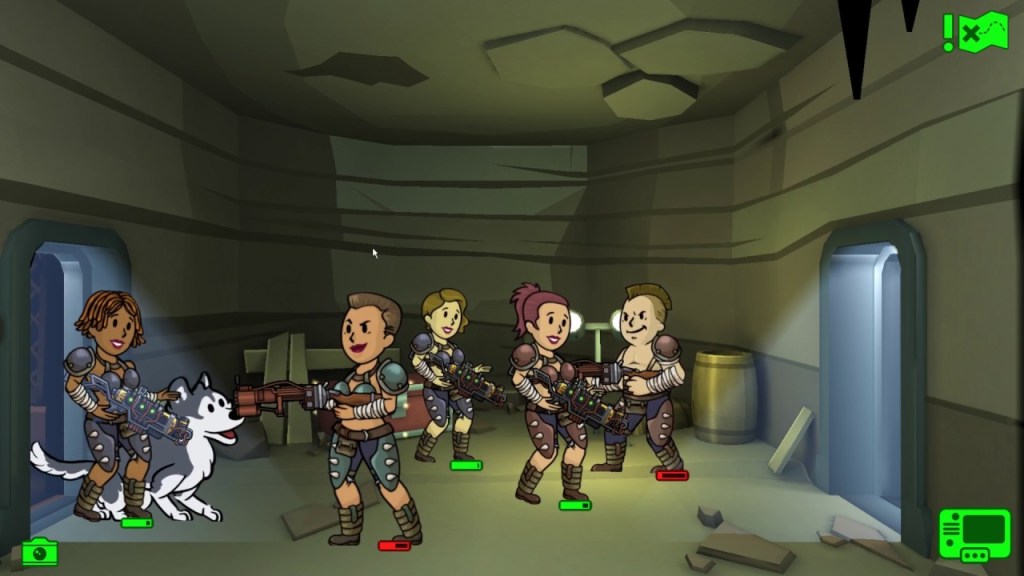
7. Fallout Shelter
Despite what its placement on this list may suggest, I like Fallout Shelter. This mobile game was surprisingly released around the time of Fallout 4‘s reveal, and few expected it to be anything more than a minor distraction that was ultimately more of an advert than a proper game. Instead, it proved to be a shockingly good time.
Fallout Shelter tasks you with managing a vault as its overseer. For the most part, that means building new stations, assigning the vault’s residents to those stations, and managing your various resources while dealing with the occasional threat. It’s not much different than the other mobile management games out there, but it’s a fantastic example of that addictive genre. I’m an especially big fan of the way the game incorporates not just the visuals and humor of the Fallout series but ideas like equipment and SPECIAL stats in ways that genuinely enhance the base experience.
All these years after its release, though, Fallout Shelter still feels like a surprisingly incomplete experience. Despite regular updates, it’s never really been expanded upon in the ways that those who initially criticized it for its lack of content hoped it would be. It’s an amusing way to get a superficial Fallout fix and kill some time, but it could have easily been so much more.
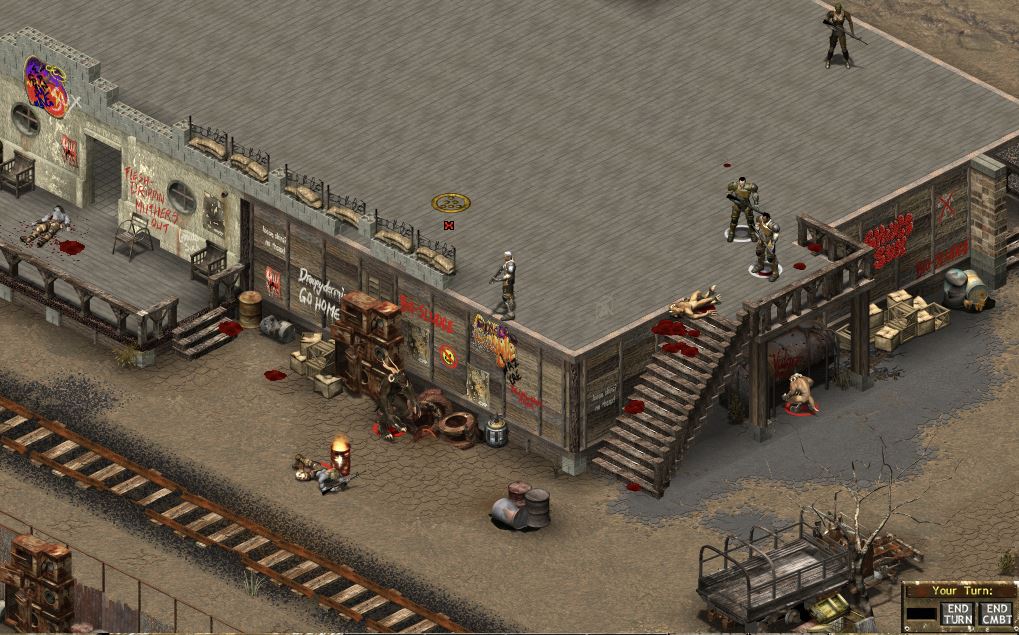
6. Fallout Tactics: Brotherhood of Steel
Like the other Brotherhood of Steel game, Fallout Tactics isn’t a Fallout game in the traditional sense. It is a squad-based strategy title that is much closer to something like Commandos or the early XCOM games. If you’re not already into that very specific genre, then Tactics probably isn’t going to do a lot to change your mind.
If that does appeal to you, though, then Fallout Tactics deserves the second (or first) look many have often denied it. The game tries to incorporate the traditional RPG elements of the Fallout franchise by offering you far greater control of the growth and functionality of your various squad members. It’s never quite the perfect blend of concepts that it could have been (it’s a surprisingly linear experience in many ways), but those extra elements ultimately enhance what is a solid tactical title in its own right.
I also love the old-school Fallout look of this game and its portrayal of the Brotherhood of Steel. There’s an almost Helldivers 2-esque quality to its depiction of that group that is still sincere enough to form the foundation of a compelling story.
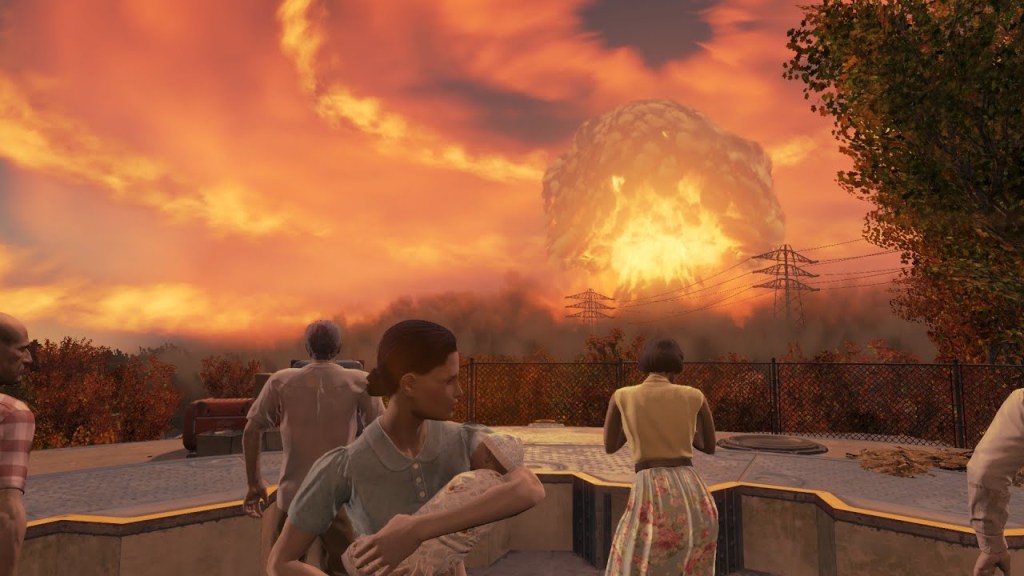
5. Fallout 4
Fallout 4 is undoubtedly the most divisive of the major Fallout releases. While I fall on the more negative side of the game, any analysis of the title has to acknowledge its numerous attributes.
First off, this is by far the most accessible game in the Fallout franchise. It looks significantly better than the previous Fallout games, its more active form of FPS combat makes much of its gameplay easier to pick up and play, and it is certainly not hurting for things to do (including the much-hyped settlement-building mechanic). At the very least, it is one of the more robust and well-made modern open-world titles and the game that the Fallout TV series is most obviously drawing from in many respects. Even Starfield arguably struggled to recreate some of this game’s best qualities.
All of that is lovely, but it all comes at the cost of Fallout’s iconic role-playing mechanics and ideas. By simplifying and streamlining numerous elements of the Fallout experience, Fallout 4 effectively neuters many of the role-playing concepts the series was built upon. Its faction reputation system is a joke, you generally have fewer choices to consider in nearly every aspect of the game, and even that streamlined combat means that your character-building/equipment choices feel less impactful than ever.
Fallout 4 is the most modern and refined entry in the Fallout franchise and a fantastic entry point for many who are accustomed to (or prefer) such experiences. However, there are far better “Fallout” games out there.

4. Fallout: A Post Nuclear Role Playing Game
The game that started it all finds itself in a somewhat strange position all these years later. Quite frankly, some will find this game to be daunting and simply unenjoyable.
Fallout’s visuals are certainly outdated (what do you expect from a ‘90s CRPG?), but the bigger hurdle here is the nature of its gameplay. In trying to recreate some of the deeper and more complex tabletop RPGs of that time, the Fallout team may have done a bit too good of a job. That is especially true of the game’s combat. Combat in Fallout often feels like the dice roll it essentially is rather than the direct results of your intended actions. If you don’t have the patience for a particularly intense classic CRPG experience, you will likely struggle with this one.
Yet, their desire to bring a deeper form of role-playing to PC gaming is the source of so many of this game’s greatest and most lasting qualities. Fallout is a pure RPG that emphasizes things like character creation, choices, and experimentation in ways that even some of its stellar sequels haven’t always been able to replicate. Few games make you feel like an ever-growing character in an ever-changing world quite so well as Fallout does, which is fortunate since all that incredible retro-futuristic, post-apocalyptic worldbuilding we love Fallout for is executed to near perfection right from the start. In general, this is a pure distillation of the things that make Fallout special.
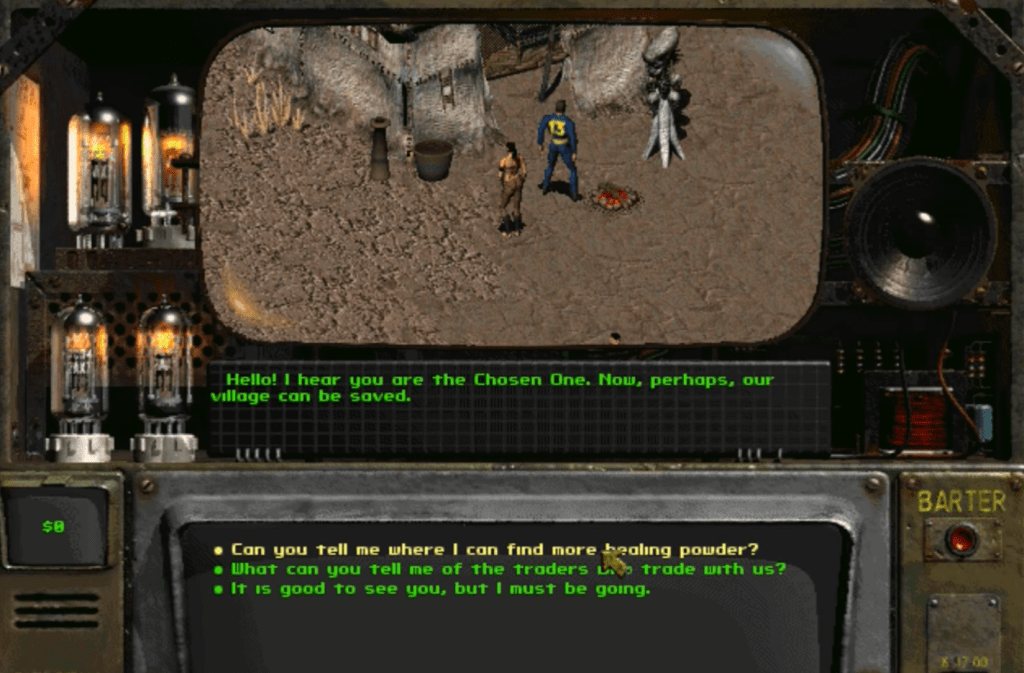
3. Fallout 2: A Post Nuclear Role Playing Game
Released almost exactly a year after its predecessor, Fallout 2 often feels closer to an ambitious expansion than the kind of modern blockbuster sequel we’re used to seeing today. While that means Fallout 2 lacks some of the big ideas that future Fallout games would benefit from, it will seemingly forever remain the definitive retro Fallout experience.
Fallout 2’s greatest gift to the franchise (and therefore the RPG genre and gaming as a whole) was the removal of so much of the bullshit that burdened the first game. Combat is much more refined (though far from perfected), the difficulty curve is much smoother, and the removal of mechanics like time-limit-based quests means that it’s easier than ever to play the game how you want. While parts of this game (especially the beginning) are certainly a bit of a slog, Fallout 2 does an exceptional job of expanding upon the more video game qualities of what was a more tabletop-like playing experience.
Interestingly, Fallout 2 also sacrifices some main story depth/quality by instead choosing to focus on the smaller adventures along the way. That may sound like a detriment, but that change made it easier to appreciate the many people who were shaped by the wasteland and the incredible stories they had to tell. That emphasis on side quests later proved to be a crucial part of the Fallout experience, and Fallout 2’s side quests are some of the best in the franchise’s history.
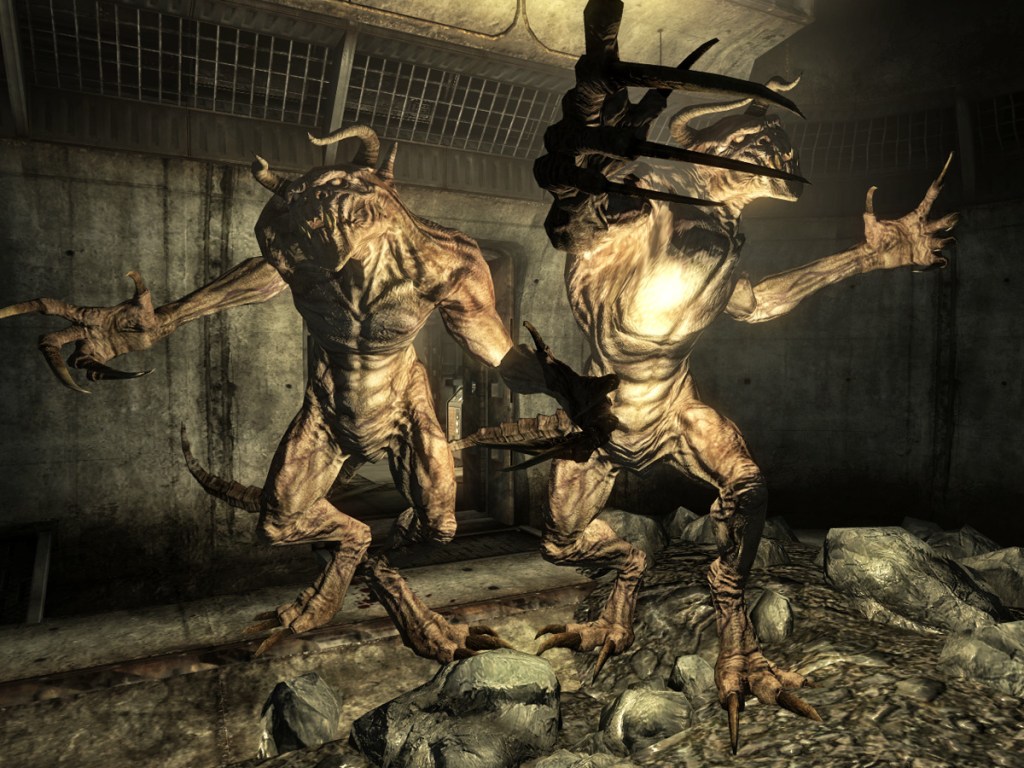
2. Fallout 3
This will undoubtedly be a controversial choice. After all, at the time of its release, Fallout 3 was widely criticized for sacrificing some of the deeper RPG elements of the previous games in favor of incorporating elements of what was quickly becoming Bethesda’s trademark style. A greater emphasis was placed on first-person gameplay, the franchise’s setting (and many of the creatures/characters that inhabited it) was altered, and the overall downplaying of your choices along the way led to a surprisingly abrupt ending that initially prevented you from continuing to explore the game after beating it.
In the years since its release, though, Fallout 3 has greatly benefited from a more modern perspective and changes to the game itself. A series of incredible DLC releases fixed Fallout 3’s biggest ending problems and generally gave you so much more to do in (and even outside of) the Capital Wasteland. Perhaps more importantly, Bethesda and Fallout’s recent history makes it significantly easier to appreciate how the Fallout 3 team tried (and often succeeded) to streamline an intense RPG experience without completely diluting the spirit and mechanics of that experience.
What that leaves you with is something pretty special. Fallout 3 offers an incredible world, an unforgettable soundtrack, largely accessible gameplay with plenty of classic RPG mechanics, fantastic sidequests, and some of the most memorable moments in Fallout history. Somewhere between the original Fallout games and Bethesda’s interpretation of that franchise is the ideal vision of this concept. Fallout 3 doesn’t quite find the perfect balance, but it comes wonderfully close.
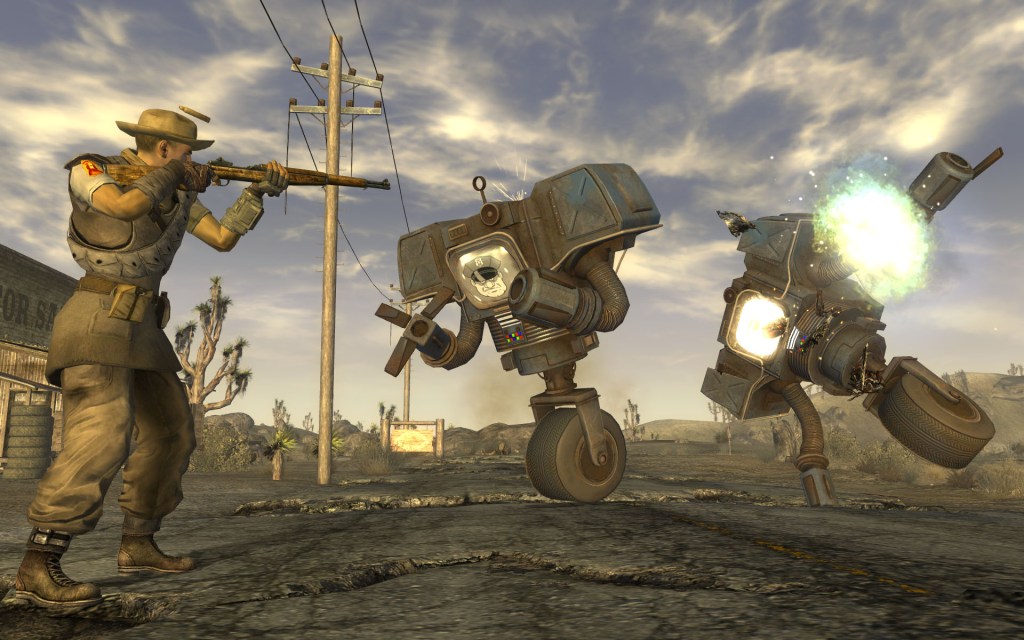
1. Fallout: New Vegas
Obsidian Entertainment only made one Fallout game, but leave it to the legendary RPG studio to walk in, set a nearly impossible standard, and then leave a trail of memories in their wake on their way out the door.
While Fallout: New Vegas certainly has its share of technical problems (although modern mods and updates address the vast majority of them), the game features the best examples of pretty much everything that makes Fallout special. The Mojave Wasteland is a classic Fallout setting filled with some of the series’ greatest adventures, locations, stories, and moments. New Vegas features a refined version of that VATS-based Fallout gameplay that allows you to experiment with and utilize all of your created character’s abilities without having to slog through “classic” CRPG combat. Even the game’s exceptional DLC and Hardcore mode give you more hours than this already robust adventure ever needed.
Ultimately, New Vegas shines brightest as the one thing Fallout was always meant to be: a post-nuclear role-playing game. From the moment you create your character to your decisions about which factions to support or oppose, every choice in this game has meaningful consequences that impact the rest of your adventure and enhance your overall experience. It is a miracle of a game that may very well prove to be impossible to top.
